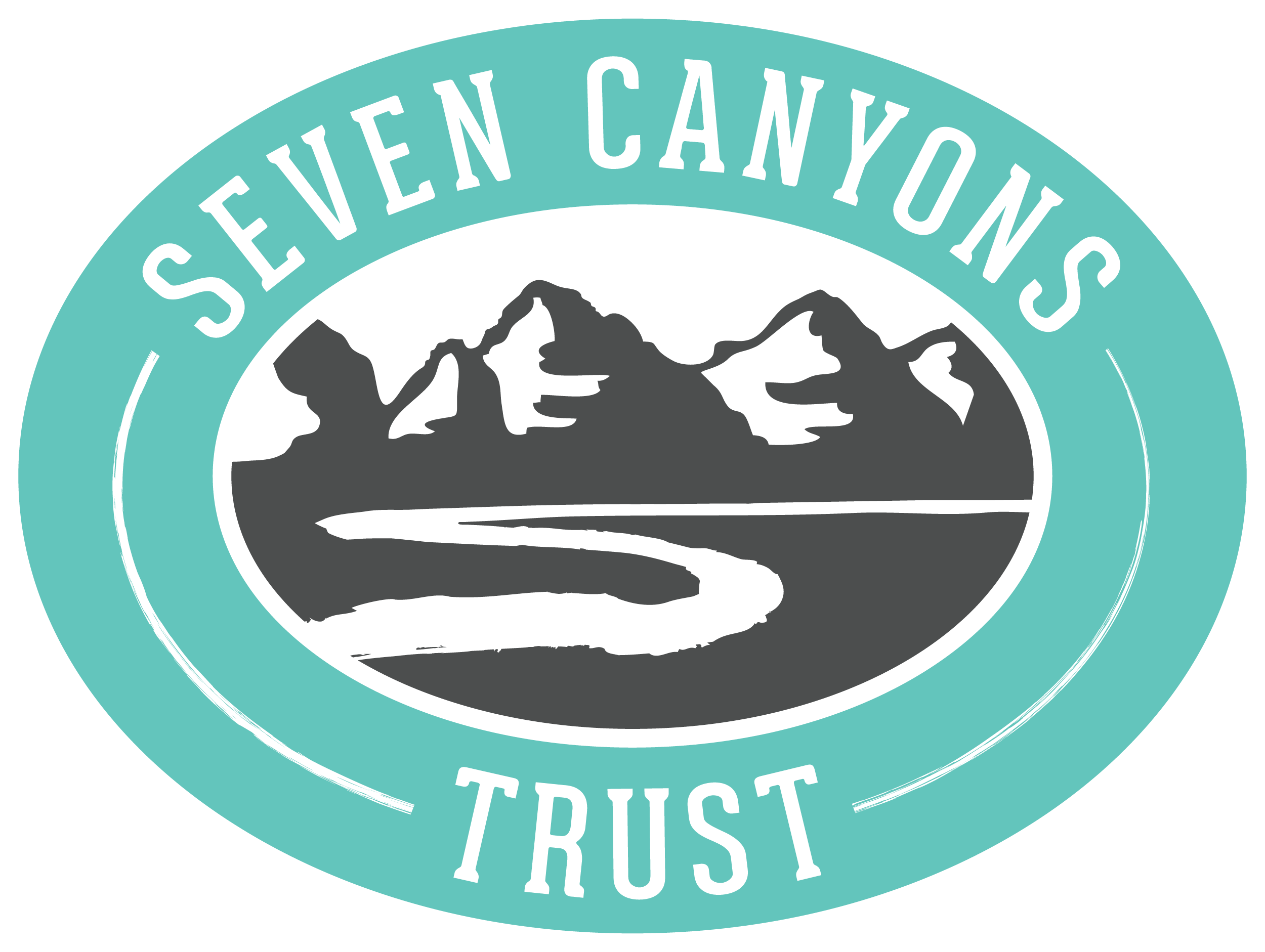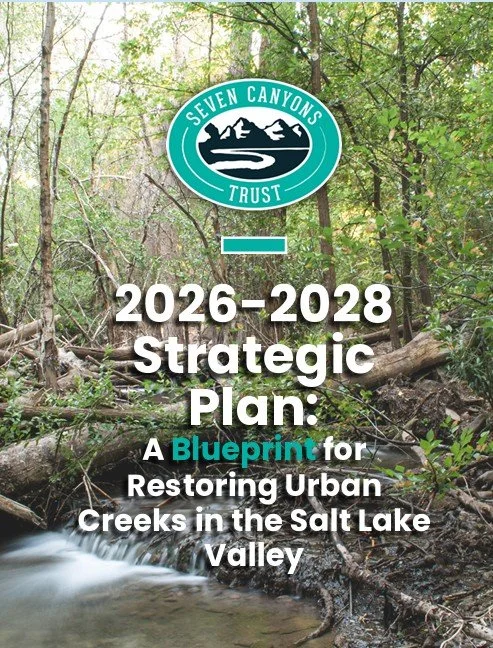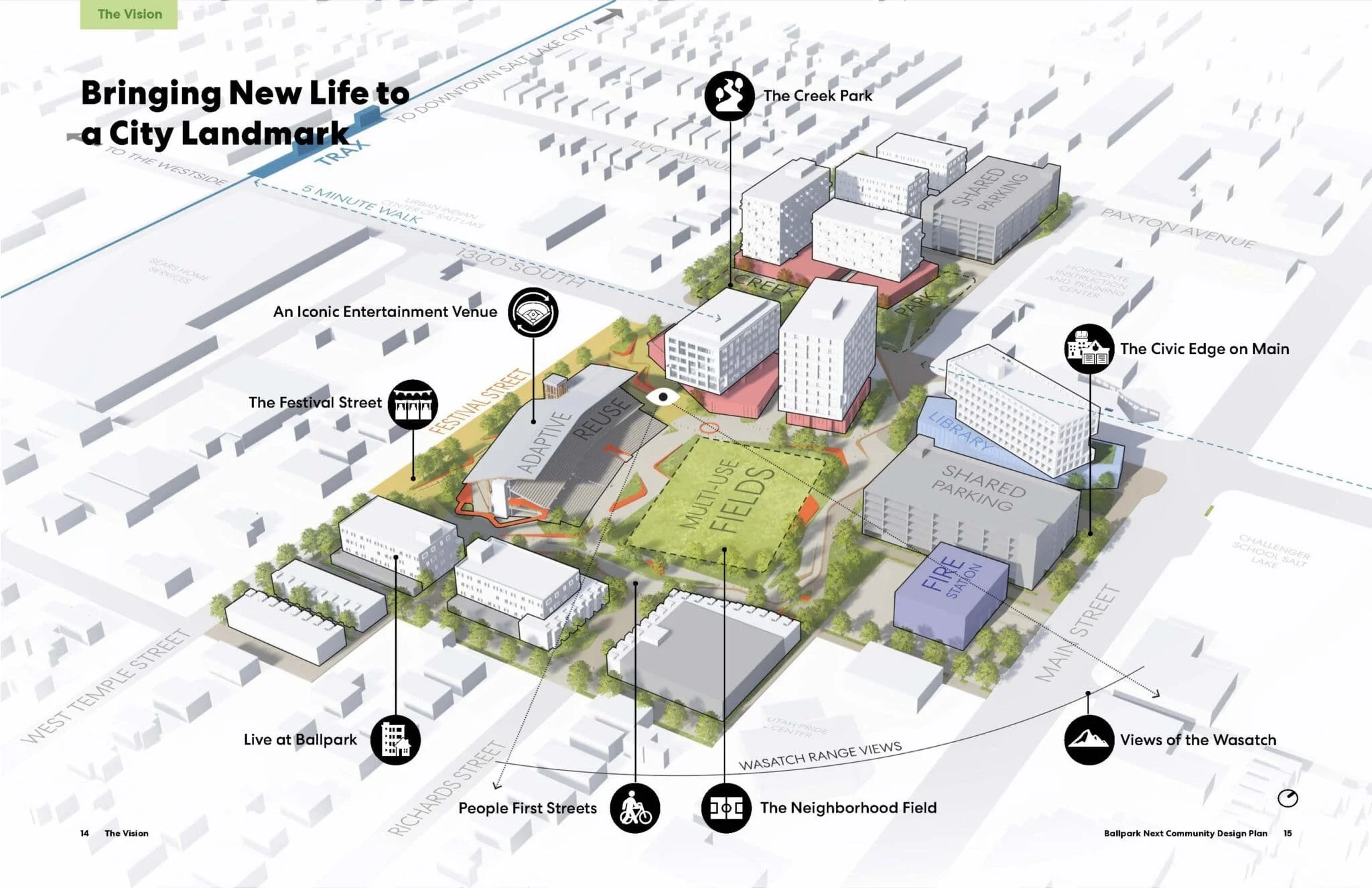Seven Sensational New Rail-Trails to Celebrate in 2022
Authored by Laura Stark
Source: Rails-to-Trails Conservancy
This articles highlights seven excellent rail-trail case studies in 2022, including the Folsom Trail in Salt Lake City, UT. Join us in celebrating these transformative public trails!
As another year comes to a close, Rails-to-Trails Conservancy is proud to showcase a handful of the new rail-trails that opened in 2022, bringing with them impactful changes that strengthened and improved the communities they connect while expanding options for people to be active outdoors—whether for recreation or transportation. Even better, when individual rail-trails like these—numbering more than 2,300 around the country—are tied into their local and regional trail networks, their benefits are multiplied. Join us in taking a moment to celebrate these new joyful and transformative public spaces.
Twin Cities Rail Trail (Massachusetts)
Spanning nearly 5 miles, the new Twin Cities Rail Trail connects Fitchburg and Leominster, both tucked against the Nashua River in northern Massachusetts. Loosely following the river, the paved pathway provides not only a scenic, largely tree-lined excursion for recreation and exercise, but also a car-free alternative to paralleling Route 12, with easy access to surrounding residential neighborhoods, parks and businesses. Keep your eyes peeled for an old whistle marker, a nod to the Fitchburg & Worcester Railroad that once ran through the corridor, and enjoy a close-up view of the cable-stayed John T. Centrino Memorial Bridge.
Currently, the trail ends tantalizingly close to Fitchburg’s Massachusetts Bay Transportation Authority (MBTA) commuter rail station; a planned bike-and-pedestrian bridge over the Nashua River and active railroad tracks—anticipated for completion in 2024—will provide future access to the station. Upcoming extensions on either end of the trail will also connect trail users with the downtown areas of its anchor cities.
Newtown Rail Trail (Pennsylvania)
In southeastern Pennsylvania, the 2.5-mile Newtown Rail Trail traverses a leafy corridor through the suburban neighborhoods and shopping areas of Bucks County’s Upper Southampton Township. A highlight of the route is Tamanend Park, one of the town’s recreational gems with gardens, athletic facilities, picnic pavilions and historical buildings, including a farmhouse, carriage house and circa 1740s barn. About midway, you’ll also find a relic of the Reading Railroad: the Southampton train station, which was built in 1892 and is undergoing restoration work.
On its western end, the pathway meets the Pennypack Trail, which spans 16 miles into neighboring Montgomery County on its way to Philadelphia. Both trails are part of the 800-mile Circuit Trails network, an RTC TrailNation™ project developing across the Greater Philadelphia–Camden, New Jersey, region.
The second phase of the Newtown Rail Trail—a 1.7-mile stretch to the Churchville Nature Center, situated on a 65-acre preserve abutting the Churchville Reservoir—is already under design and anticipated to be constructed within the next two years. Additional extensions will head farther east to the Borough of Newtown, and the trail will eventually total about 8 miles.
West Rail Trail (Texas)
At the southern tip of Texas, Cameron County’s West Rail Trail connects the quiet, close-knit neighborhoods of west Brownsville. Spanning 6.6 miles, the paved pathway follows a former Union Pacific railroad right-of-way beginning near the 77 Flea Market (a popular shopping and dining amenity) and heads south past a handful of schools, small lakes and parks, ending at Palm Boulevard. Along the way, a cacophony of parrots and other subtropical birds can be heard in the corridor as well as the mooing of cows in the fields along its more rural northern sections.
The West Rail Trail plays an integral part in the city’s connected trail loop, which loosely forms a rectangle. It parallels another rail-trail—the Historic Battlefield Trail—and the two longer trails are connected by the short arms of the rectangle comprising the Belden Trail and the Morrison Road Trail. This trail system is tucked inside an even more expansive network, the Caracara Trails, a developing 428-mile TrailNation project that aims to connect communities all across the Lower Rio Grande Valley.
North Shore Rail Trail (New York)
This summer, Long Island opened its first rail-trail: the 10-mile North Shore Rail Trail connecting a handful of hamlets in the Town of Brookhaven. Paralleling Route 25A, the paved pathway provides a safer—and more scenic—route for residents to reach schools, parks, restaurants and other businesses.
Owned by the Long Island Power Authority and leased by Suffolk County for trail use, the corridor follows a rail line built in the 1800s that was used by famed inventor Nikola Tesla to get to his laboratory; the building—which is a stone’s throw from the trail and is being renovated into the Tesla Science Museum—is currently open for occasional special events and educational programs.
Future plans call for connecting the trail to others in Suffolk County, such as the nearby Setauket-Port Jefferson Station Greenway Trail, as well as tying it into a planned 175-mile route across Long Island that meets New York’s state-spanning Empire State Trail at Battery Park.
Bennington Rail Trail (Vermont)
Surrounded by mountains, forests and farms, Bennington occupies a picturesque corner of southwestern Vermont (and was home to famed poet Robert Frost). Beginning just north of the downtown historic district, the Bennington Rail Trail provides access to several businesses on its nearly 2-mile journey north to Emma Street. Buffered by trees, it’s a pleasant alternative to paralleling Route 7, the main north-south thoroughfare through town. Glimpses of the trail’s railroad past can be seen as it crosses the Walloomsac River on a trestle circa 1908, and at the 1897 train station at its southern terminus (now housing office space).
The rail-trail connects to two east-west routes: the path along Kocher Drive and the Walloomsac Pathway, offering access to an elementary school and residential neighborhoods. The town has plans to continue building on this growing network of shared-use trails, such as new connections to Bennington College—from which several famous authors hail—and the village of North Bennington.
Folsom Trail (Utah)
Once an industrial corridor, the 1-mile Folsom Trail is adding a new place for residents to walk, bike and enjoy the outdoors on Salt Lake City’s west side. Landscaping improvements along the paved pathway may include native plantings as well as the potential to transform a culverted stretch of City Creek into a more welcoming public space—a project which is currently being assessed.
The route, which is partially a rail-with-trail alongside active train service, also provides access to two Utah Transit Authority hubs: North Temple Station on the FrontRunner commuter line between Ogden and Provo, and the North Temple Bridge/Guadalupe Station on the TRAX light rail system connecting to the Salt Lake City International Airport, downtown and other key destinations.
When a short western extension is complete (increasing the trail’s distance by up to a half-mile), it will reach the Jordan River Parkway Trail, part of a 92-mile north-south spine of multiuse trail stretching from Ogden to Provo Canyon. This will open up even more recreational and alternative transportation access for the community.
Medfield Rail Trail (Massachusetts)
In a southwestern suburb of Boston, the 1.3-mile Medfield Rail Trail traverses a lushly wooded corridor once used by the Bay Colony Railroad. Beginning on the northern end of Medfield at Ice House Road, the crushed-stone pathway (suitable for horses as well as bikes and foot travel) makes its way northeast to the Dover town line, ending shortly after crossing Farm Street.
The route is part of a regional effort to connect Medfield, Dover, Needham and Newton via the developing 7-mile Bay Colony Rail Trail, which follows an MBTA right-of-way.




